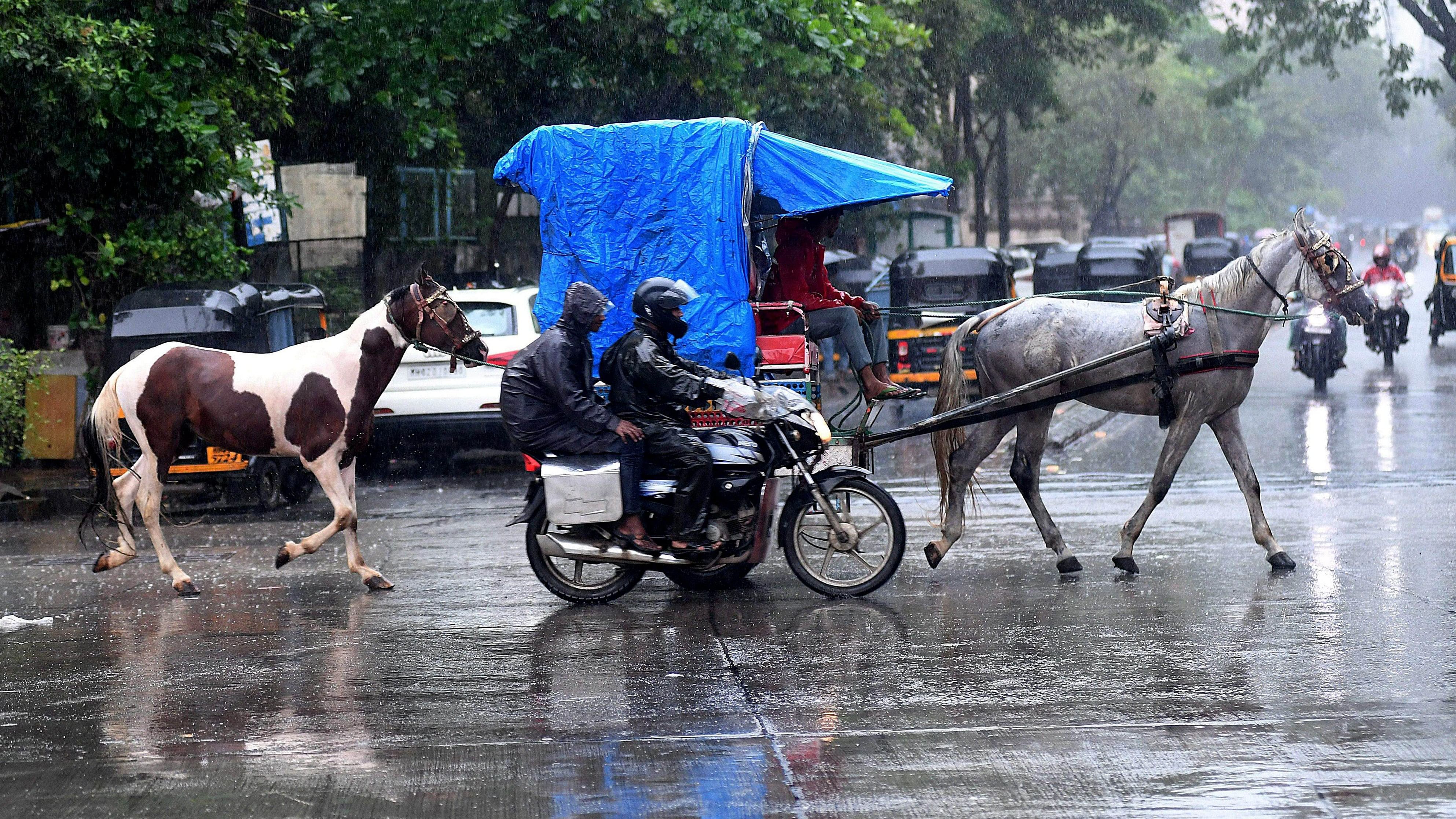
A horse cart, seen during rains, in Mumbai, Saturday.
Credit: PTI Photo
New Delhi: Three horses in Delhi that tested positive for glanders, a zoonotic disease, have been euthanised to prevent further suffering, PETA India said, urging authorities to enforce the National Action Plan for Control and Eradication of Glanders and reinforce the 2010 ban on horse-drawn tongas.
Glanders is a zoonotic disease caused by the bacterium Burkholderia mallei. While human beings can contract glanders, it primarily affects horses and also impacts donkeys, mules, goats, dogs, and cats.
The disease is commonly contracted by consuming food or water contaminated by the nasal discharge of carrier animals. It is characterised by purulent nasal discharge, nasal mucosal ulceration, lung lesions, and ulcerating nodules.
People for the Ethical Treatment of Animals (PETA) India, in a statement said, blood samples were collected from horses being used illegally to ply tongas. The test confirmed the presence of this highly contagious disease, which poses serious risks to both equines and humans.
The Indian Council of Agricultural Research’s National Research Centre on Equines confirmed the presence of glanders in the infected horses’ blood samples nearly six months ago, it said.
However, testing of other horses only began this month.
Under the protocol of the National Action Plan for Control and Eradication of Glanders in India (NAPCEGI), the infected horses must be immediately quarantined and all equines within a five-kilometre radius should be tested, the statement reads.
Despite this, the infected horses were left among the public until August 31, increasing the risk of glanders spreading.
On February 22, PETA India submitted serum samples from four horses, three of which tested positive for glanders, the organisation told PTI.
In response, the Department of Animal Husbandry (DAHD) ordered repeat testing on March 13, leading to reconfirmation of the test results by the Indian Council of Agricultural Research - National Research Centre on Equines (ICAR-NRCE).
The infected horses were euthanised, the statement read.
However, footage captured by PETA India revealed that personnel allegedly mishandled the animals -- using force and lacking protective equipment -- actions that could have further compromised public safety, the statement read.
Following this, on September 20, PETA India renewed its appeal to Gopal Rai, Delhi’s Minister for Environment, Forest, and Wildlife Development, to enforce the 2010 ban on horse-drawn tongas.
"There’s an urgent need to eliminate horse-drawn tongas in Delhi, as they are not only inhumane for the animals but also pose a risk of zoonotic disease transmission,” said PETA India’s Senior Policy Advisor, Ujjwal Agrain.
"The government must take immediate steps to replace tongas with motorized alternatives to ensure both public health and animal welfare,” Agrain said.
PETA India has also requested an official investigation into the handling of the infected horses and the delay in implementing containment measures as outlined in the NAPCEGI.